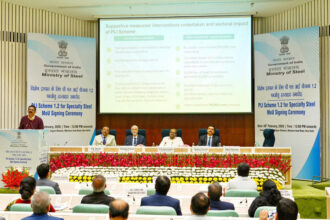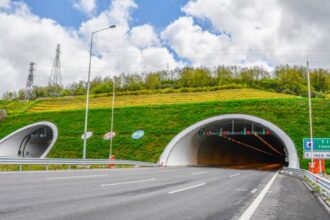Cement prices have surged significantly in the current fiscal year, driven by increased pressure from rising input costs, particularly the price of petroleum coke (petcoke), according to the report.
The all-India average cement price surged to ₹360 per 50 kg bag in May 2025, marking an 8% increase compared to the same period last year, following a significant drop the previous year. While regional variations remain—eastern India, for instance, saw the sharpest hikes with a ₹20 rise per bag in West Bengal—western markets experienced more modest increases of ₹3 per bag. Nevertheless, the overall trend across the country is unmistakably upward.
The report indicates that demand remains strong, increasing by 9% in May to reach 39.6 tonnes, driven by housing and government-backed infrastructure projects. Analysts predict a 6-7% growth in volumes for FY2026, with expected totals of 480-485 tonnes. The primary driver of upward pressure is the rising cost of fuel, particularly petroleum coke (petcoke), which accounts for more than 50% of the cement industry’s fuel mix. In the spot market, international petcoke prices have surged by 17%.
India’s cement industry usually imports 12-14 million tonnes of petcoke annually, primarily from the USA (60%) and Saudi Arabia (25%). This has led to an increase in costs for Indian cement producers, adding ₹75 per tonne – ₹60 due to the price hike and ₹15 attributable to the depreciation of the rupee.
Fuel and power typically represent 30-35% of total production costs, so any sharp increases in these expenses directly impact profitability. Companies such as Shree Cement and JK Cement, which depend on petcoke for 70-95% of their energy requirements, are particularly vulnerable. Although recent declines in coal prices offer some relief, the sector continues to face significant cost pressures.










